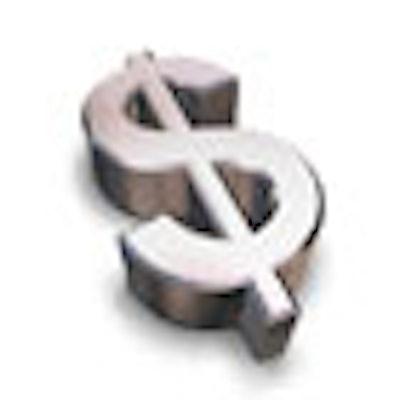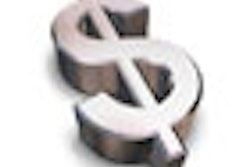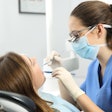
Whatever the effects of the current recession, a new report from the ADA suggests that U.S. dentists enjoyed a remarkably steady uptick in income throughout the first seven years of the decade.
— Roger Levin, D.D.S.
Overall, independent dentists -- those who own all or part of their practices -- earned an average of $234,120 a year in 2007, the latest year for which the ADA has collected data. (The survey of randomly selected dentists had 2,416 respondents. Salary figures were ± $7,916 at a 95% confidence interval.)
Breaking the numbers down by specialty, oral and maxillofacial surgeons made $435,630, endodontists made $385,160, orthodontists and dentofacial orthopedists made $348,460, periodontists made $270,410, prosthodontists made $257,300, and general practitioners made $205,960.
The mean income figure for the profession as a whole was $234,120, up 4.4% from $224,190 in 2006. That number mirrored similar growth the previous year -- and the year before that. In fact, it continues an impressively even trend line stretching back to at least 2001, when dentists earned $191,690.
More significantly, perhaps, dentists' incomes have risen faster than inflation. From 2003 to 2007, real net income has risen at 1% a year. With ever-increasing costs of supplies, staff salaries, rents, and everything else associated with running a dental practice, how is this possible?
"Dentistry is fee for service," said Irvin Lubis, D.M.D., of DentalSuccessMarketing.com. More than in most occupations, dentists are able to pass on their increased costs to their customers.
According to the ADA, average gross billings in 2007 increased to $773,920, up 8.6% from the previous year, accelerating the trend of 6.3% annual increases for the previous four years. Meanwhile, expenses increased by only 5.5% per year for those years, reaching $385,630 for solo general practitioners in 2007. (Billing minus expenses did not equal net income in the survey because not every participant answered every question and the standard deviation was large.)
But why are patients willing to pay more each year?
Dentists have benefited from the increased demand for dentistry from baby boomers trying to keep their youthful smiles, Dr. Lubis said. "They took care of the kids, they put them through school, and then they said, 'It's time for me,' " he said.
Spending on elective procedures such as implant placement soared throughout the decade, he noted.
Other analysts have argued that the widespread use of fluoride, among other factors, has helped Americans keep more teeth late in life -- and that they need help keeping those teeth healthy.
If the demand has increased, the supply of dentists per population has remained stable or declined. And where demand outpaces supply, prices generally rise.
Roger Levin, D.D.S., president of practice management consulting firm Levin Group, acknowledges that there may be fewer dentists per person. But he thinks dental offices have compensated by employing more trained staff, so access to care has not suffered. Rather, he thinks dentists are making money because they are running their businesses more intelligently. "Dentists beat inflation by creating more efficient systems," he said.
Though the ADA has not published actual income figures for 2008, its surveys show dentists think their income is down for the current year. Drs. Lubin and Levin agree that 2008 and 2009 have been rough for a profession that sailed unscathed through the recession of 2001.
"This is the first recession in my 25 years of practice that I remember affecting dentists' incomes," Dr. Levin said. "This one was different because it came on so fast and was so deep."
But the two experts predict that dentists' incomes will eventually return to their steady upward trend.
Copyright © 2009 DrBicuspid.com



















